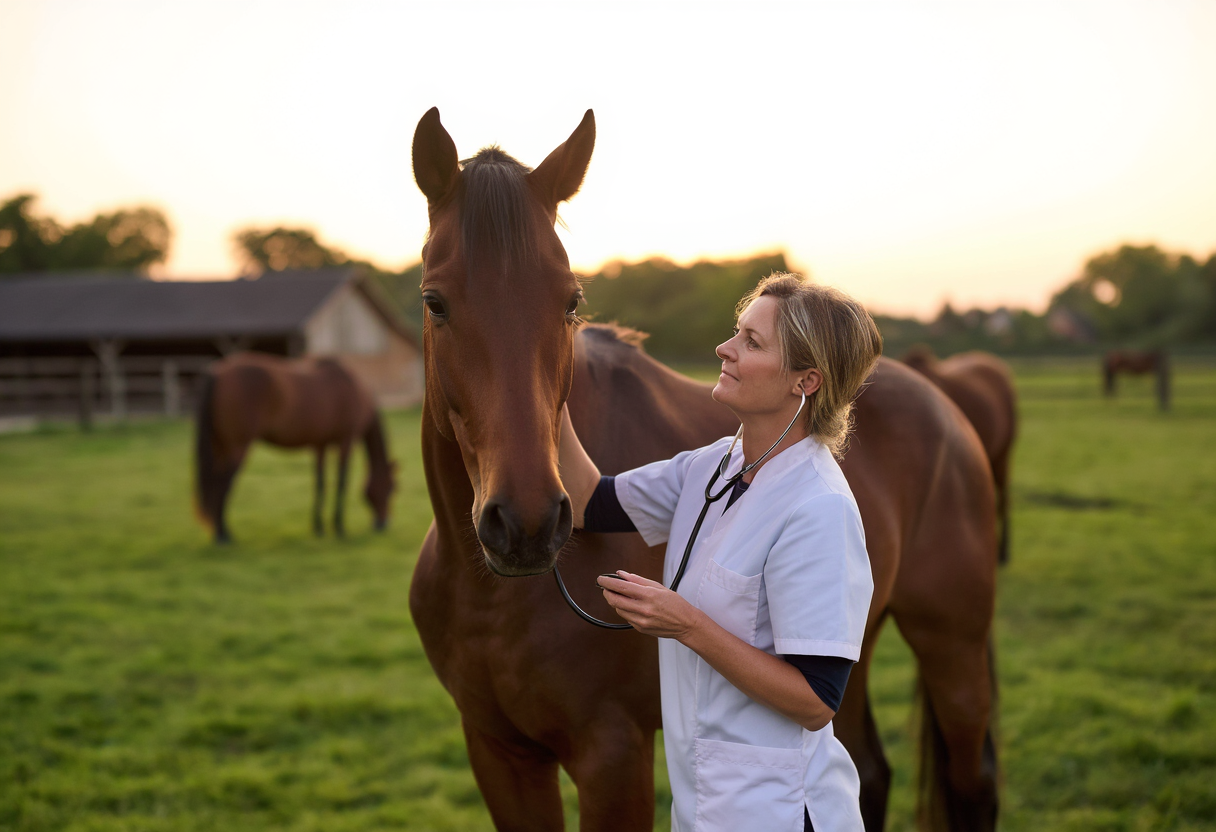Understanding Equine Veterinary Services: Beyond the Basics
Exploring Equine Veterinary Services reveals a complex interplay of health management, preventive care, and specialist treatments tailored to horses. This article navigates the multifaceted dimensions of these services, highlighting modern advancements and their impact on equine wellbeing.
Defining Equine Veterinary Services
Equine Veterinary Services encompass a wide array of health care practices dedicated specifically to horses. These services not only include routine health check-ups and vaccinations but also extend to specialized treatments for various conditions affecting equines. The importance of established Equine Veterinary Services cannot be overstated, as they play a crucial role in maintaining the overall health and well-being of horses. Furthermore, these services are essential in promoting early detection of illnesses, which is vital for effective treatment. The role of professionals in Equine Veterinary Services also includes educating horse owners about proper care and maintenance, ensuring that they are equipped to manage their animal's health effectively. Consequently, a well-rounded understanding of these services is imperative for every horse owner. While the basics serve an important function, diving deeper into the nuances of Equine Veterinary Services reveals advanced practices that cater to the individual needs of each horse.
The Importance of Preventive Care in Equine Veterinary Services
Preventive care is a cornerstone of Equine Veterinary Services. Regular vaccinations, dental care, and nutritional advice form a comprehensive preventive strategy designed to avert health problems before they arise. By adhering to a structured preventive care program, horse owners can significantly reduce the risk of serious health issues, leading to better performance and longevity in their equines. It is essential for Equine Veterinary Services to tailor preventive measures based on individual horse needs, which may vary from one horse to another depending on their age, breed, and activity level. Owners often benefit from having an open dialogue with their veterinarians to discuss the best preventive care options available. Additionally, the integration of technology in offering these services allows for more personalized health monitoring, which can pinpoint potential problems early on. Thus, preventive care is not merely a recommendation; it is an essential factor in the efficacy of Equine Veterinary Services.
Specialized Treatments and Advancements
Advancements in medical technology have revolutionized Equine Veterinary Services, introducing cutting-edge treatments that were previously unavailable. From advanced diagnostic tools like MRI and ultrasound to innovative surgical techniques, the scope of care has greatly expanded. These specialized treatments are designed to address specific health issues, such as lameness, colic, and respiratory problems, thereby improving the quality of life for affected horses. The emphasis on continuous professional development ensures that practitioners in Equine Veterinary Services remain knowledgeable about the latest methodologies and technologies, providing top-notch care. Furthermore, collaboration amongst veterinary specialists enhances the overall approach to complex cases, leading to improved outcomes. Such advancements make it clear that Equine Veterinary Services are evolving, aiming towards not just treating existing conditions, but also enhancing the general health and performance of horses.
Economics of Equine Veterinary Services
Understanding the economics surrounding Equine Veterinary Services is crucial for horse owners and veterinary practitioners alike. Equine care can be a significant financial investment, influenced by the frequency of veterinary visits, the complexity of treatments, and the specific health needs of the horse. However, proactive engagement with Equine Veterinary Services can lead to long-term savings by preventing more severe health issues that necessitate costly interventions. Moreover, the economic aspect also ties into ownership responsibilities; horse owners should be prepared to allocate a budget for regular veterinary expenses to ensure the best care for their animals. Building a strong working relationship with an equine veterinarian helps in negotiating costs and understanding the value of these essential services. Consequently, creating an economically sustainable strategy for Equine Veterinary Services is beneficial for all parties involved.
Cultural Variations in Equine Veterinary Practices
Equine Veterinary Services vary significantly across different cultures and regions. In some countries, traditional methods of horse care are deeply ingrained, often coexisting with modern veterinary practices. This blending of old and new provides a unique lens through which to view Equine Veterinary Services globally. Understanding these variations is paramount for professionals involved in international equine care, as cultural sensitivity can influence how services are delivered and received. Moreover, fostering international collaboration can lead to knowledge transfer and enhanced practices within Equine Veterinary Services. As equine enthusiasts desire a more holistic understanding of horse care, recognizing differing cultural approaches to veterinary services promotes a more inclusive and effective industry.
Conclusion: The Future of Equine Veterinary Services
As we look towards the future, the field of Equine Veterinary Services is poised for exciting developments. The integration of telemedicine, advancements in genetics, and a growing emphasis on preventive care will likely transform the landscape of equine health management. Additionally, as equine enthusiasts become more informed about the diverse aspects of horse care, the demand for comprehensive Equine Veterinary Services will increase. Future research and development within this field will focus on enhancing existing practices and exploring new methodologies to cater to the evolving needs of horses and their owners. In conclusion, embracing the complexities and advancements in Equine Veterinary Services not only benefits equines but also enriches the community of equine caretakers.
